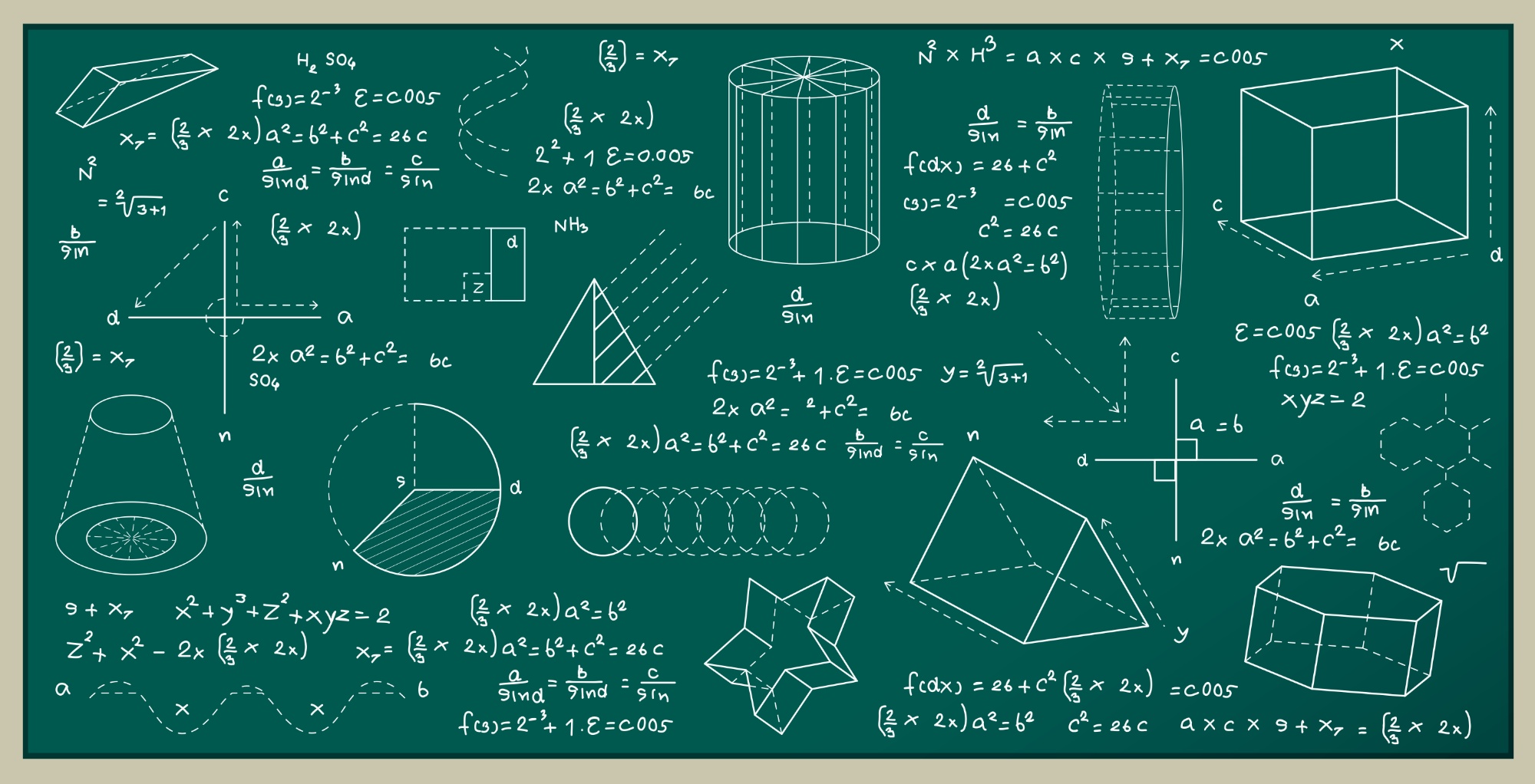Mathematics
Maths Team
| Mrs R Clements | Head of Maths |
| Mr S Adjei | Teacher of Mathematics and Key Stage 5 Co-ordinator |
| Mr C Hadler | Teacher of Mathematics and Key Stage 4 Co-ordinator |
| Ms F Karrim | Teacher of Mathematics and Key Stage 3 Co-ordinator |
| Mr F Arthur-Aidoo | Teacher of Mathematics |
| Mr A Osei | Teacher of Mathematics |
| Mr A Beaumont | Teacher of Mathematics |
| Mrs L Tingley | Teacher of Mathematics |
| Miss C Kent | Teacher of Mathematics |
| Mrs L Tatton | Teacher of Mathematics and 1-to-1 Teacher |
Our Curriculum Intent
Our aim is to provide students with a deep conceptual understanding of Mathematics. This will then enable them to articulate their learning confidently. A sequence of small steps are used to ensure that content is mastered before moving on. Students will then be able to apply their understanding to problem-solving and develop the independence needed for further study. We emphatically reject the idea that people just 'can’t do maths'.
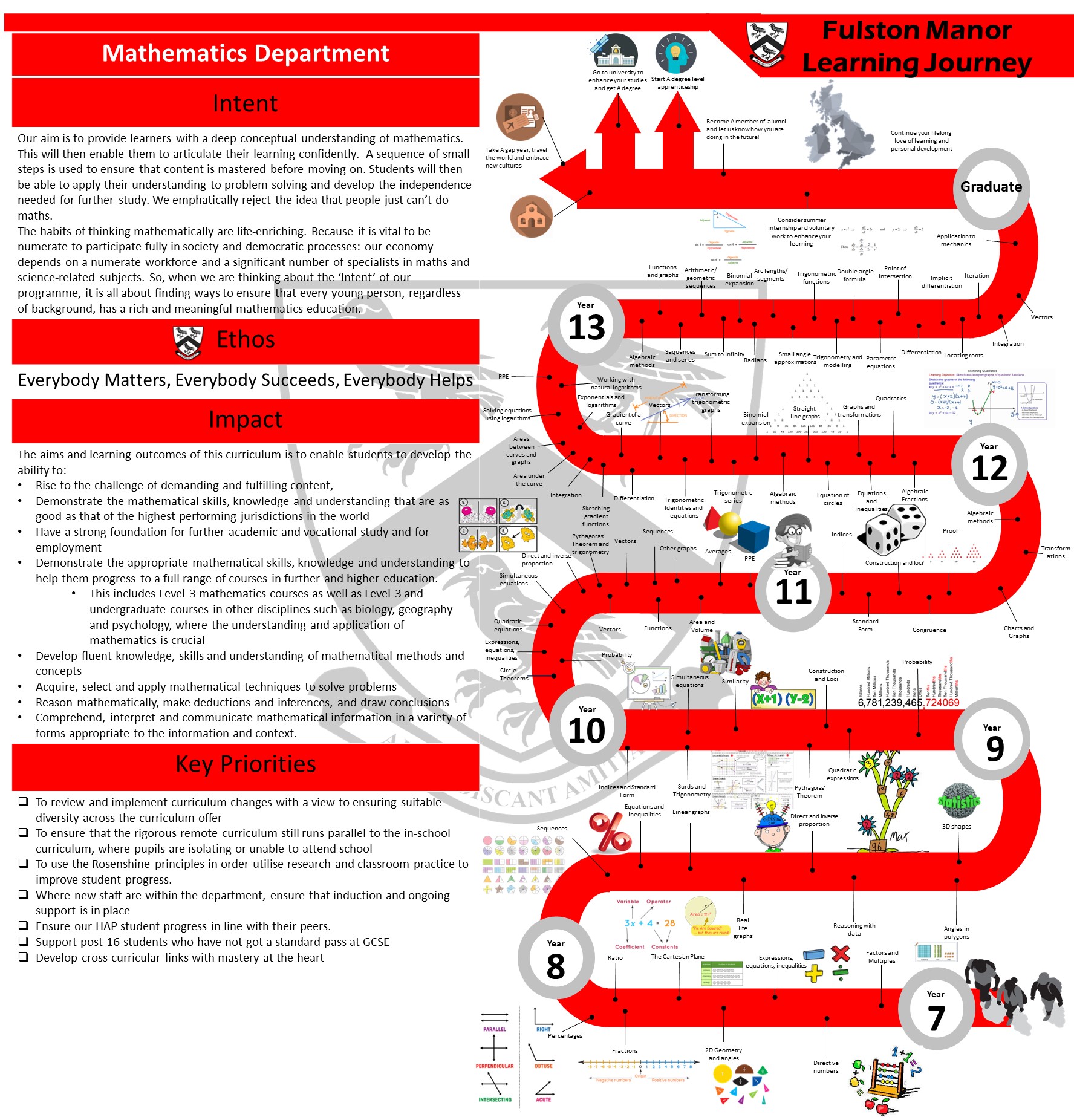
What Will Students Learn In Each Year?
The links below give a detailed breakdown of what is taught in the curriculum for each year.
Key Stage 3
What will my child learn in Year 7?
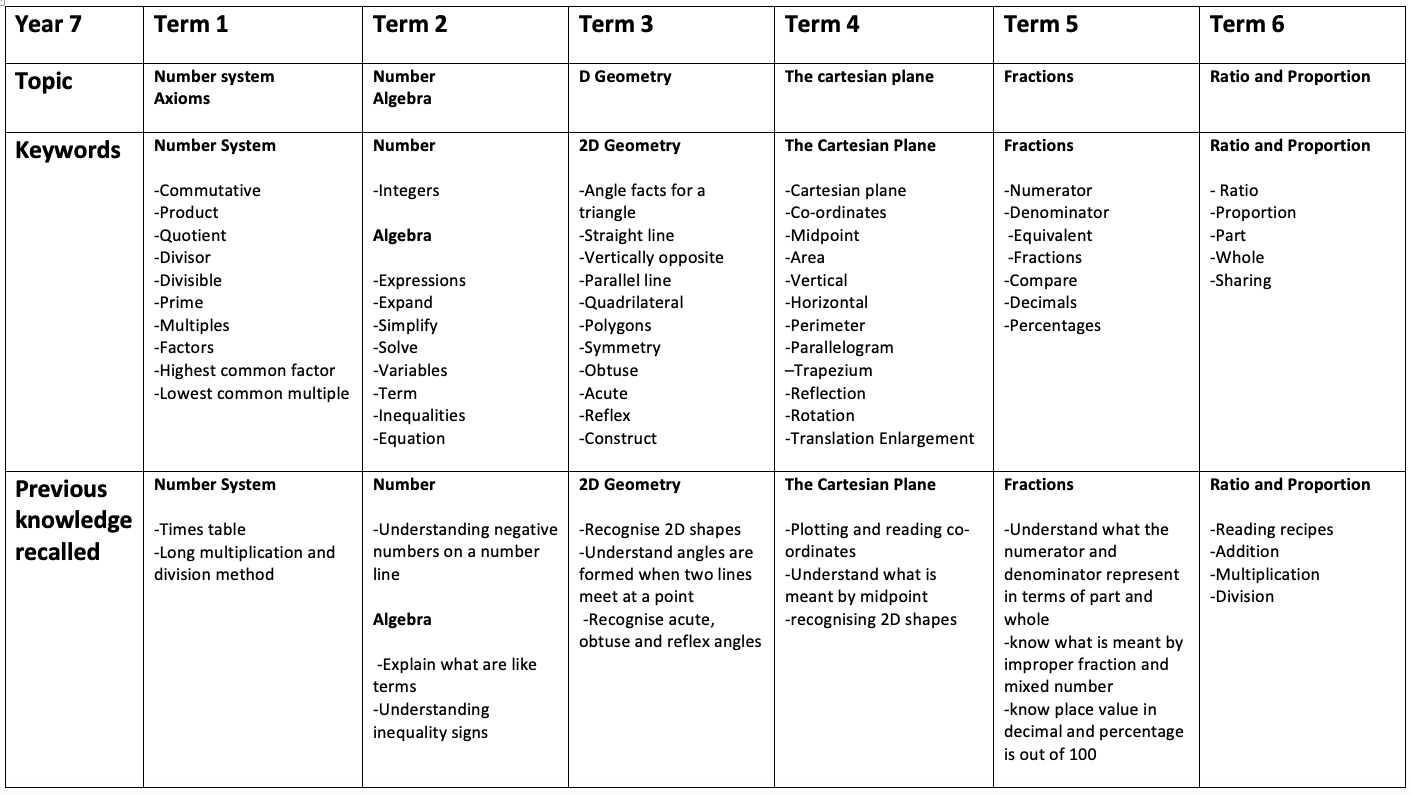
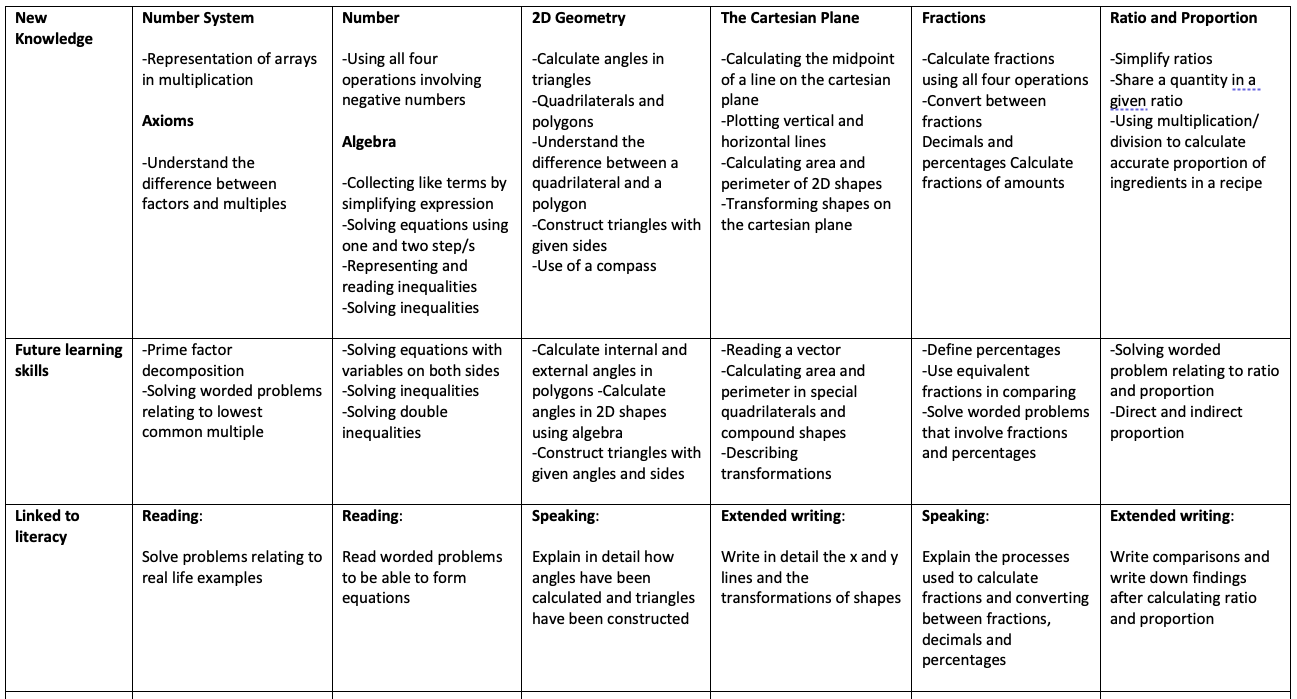

What will my child learn in Year 8?
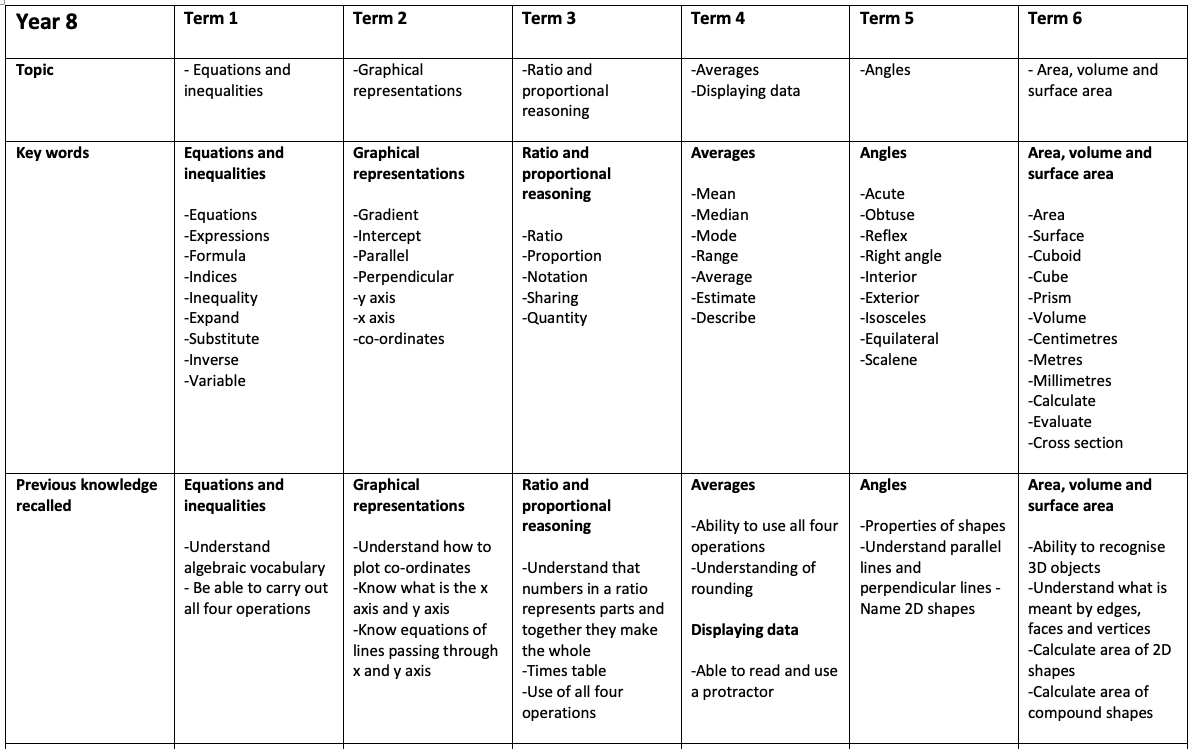
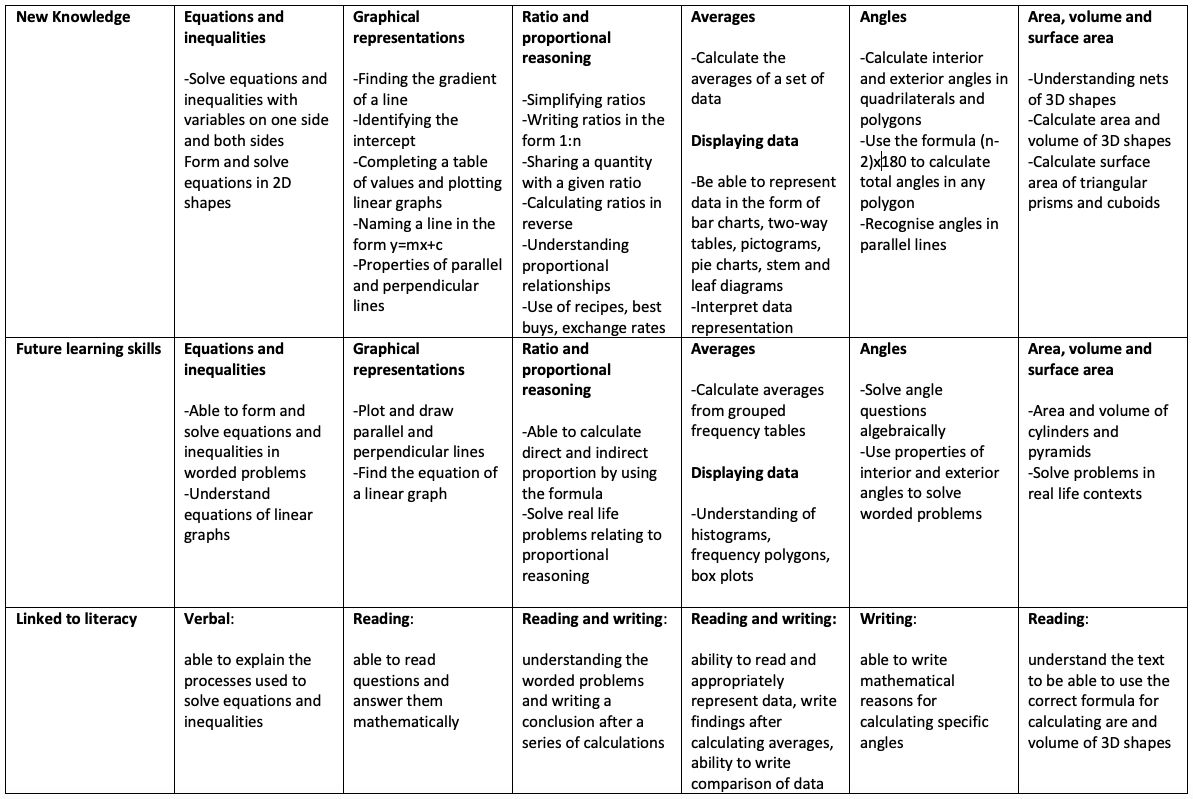

What will my child learn in Year 9?
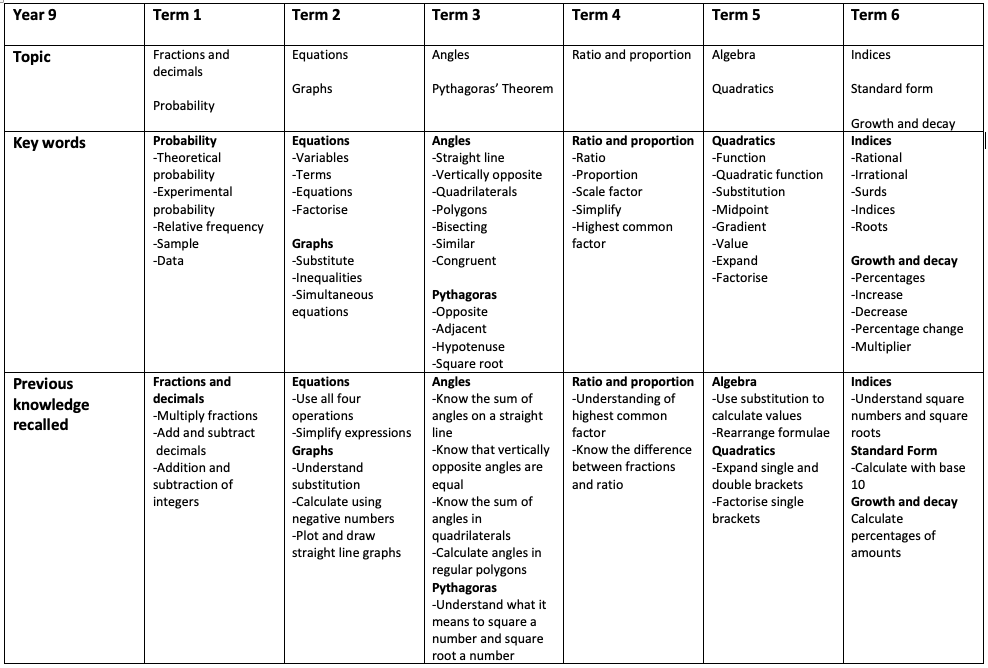
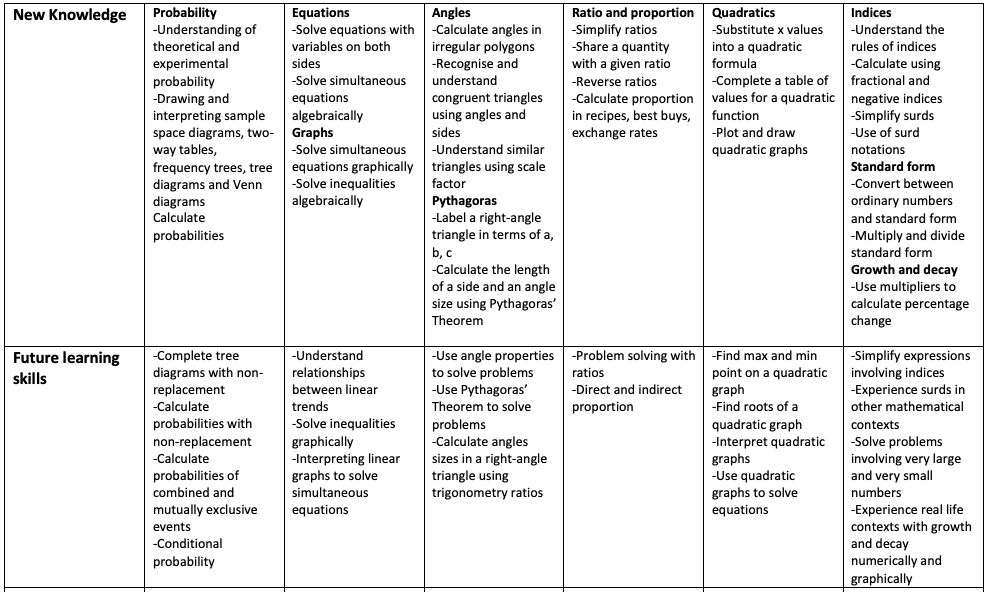
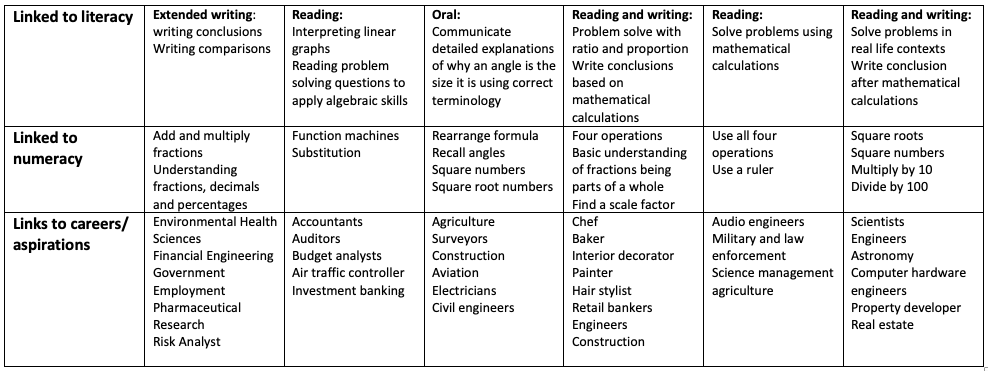
Key Stage 4
What will my child learn in Year 10?
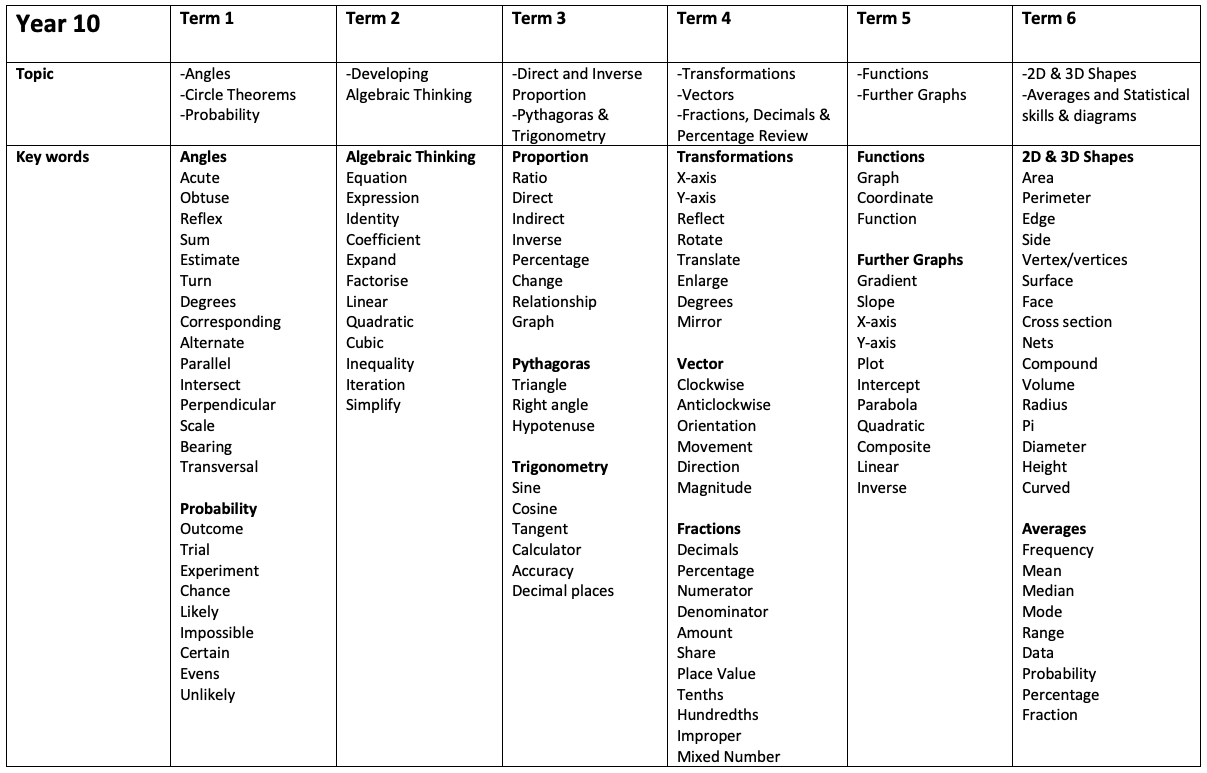
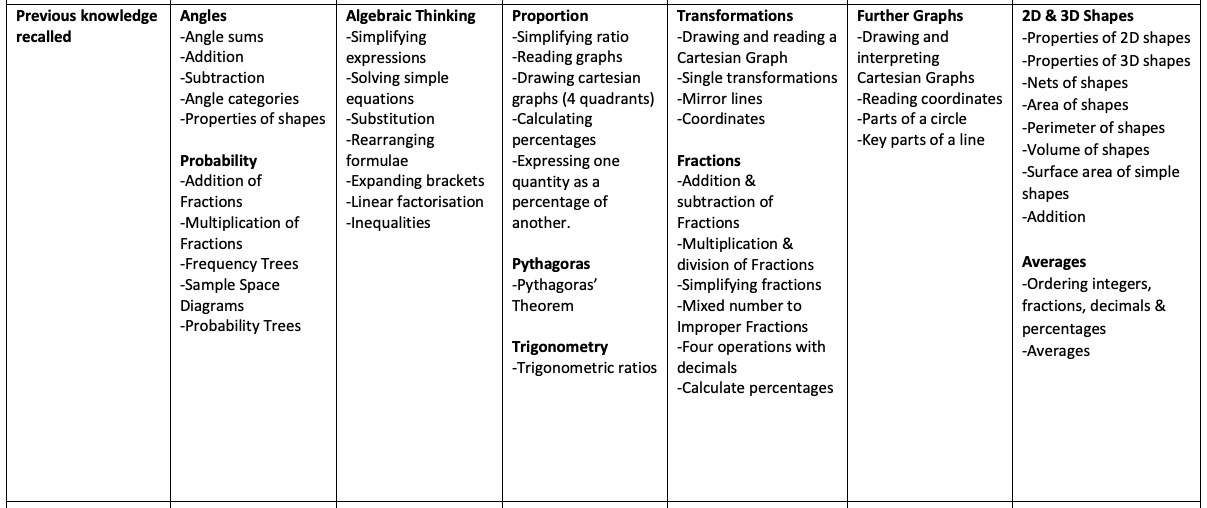
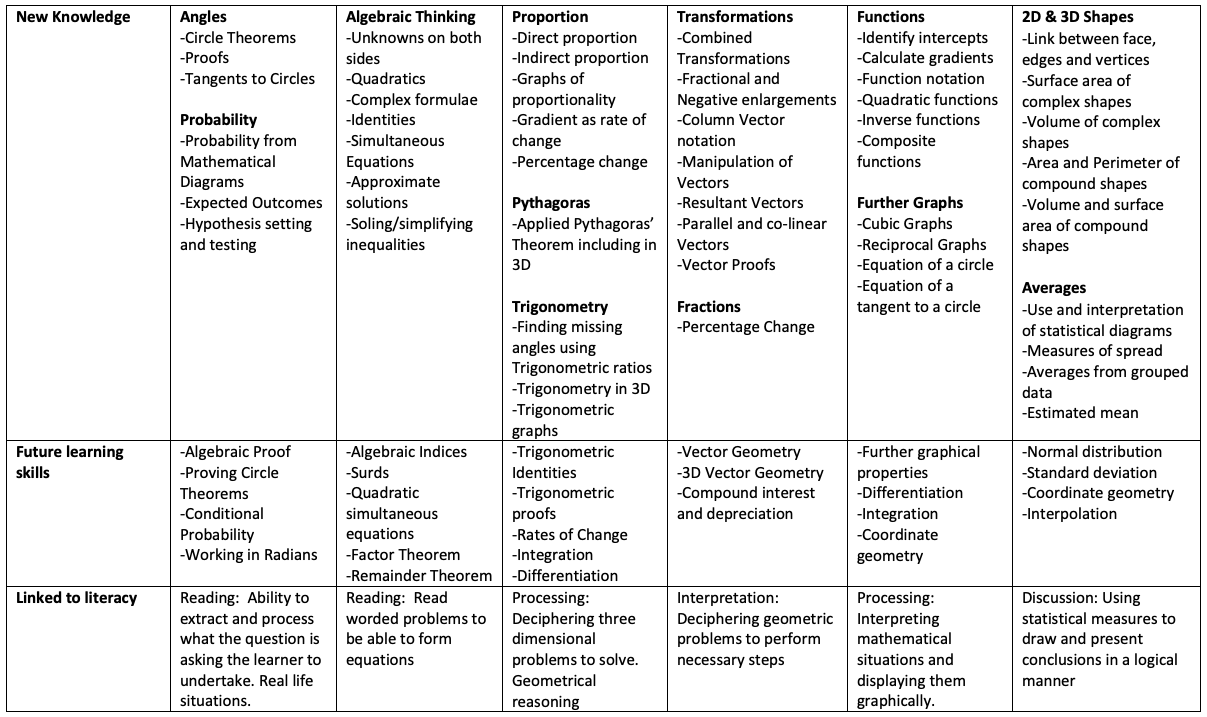

What will my child learn in Year 11?
| Term 1 |
|
| Term 2 |
|
| Term 3 |
|
| Term 4 |
|
| Term 5 |
|
| Term 6 |
|
Key Stage 5
What will my child learn in Year 12 Pure Maths?
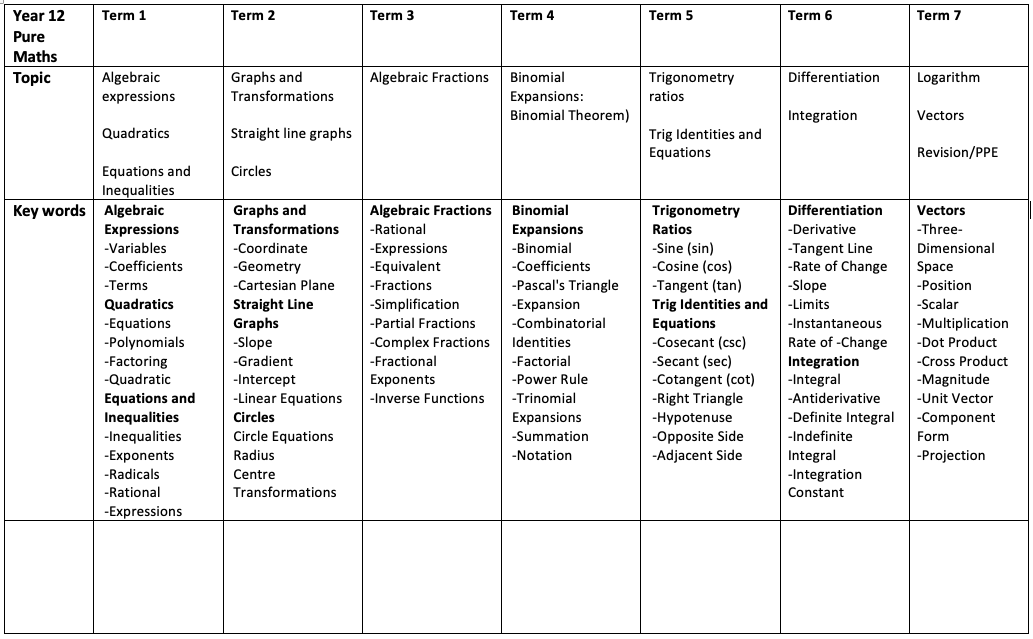
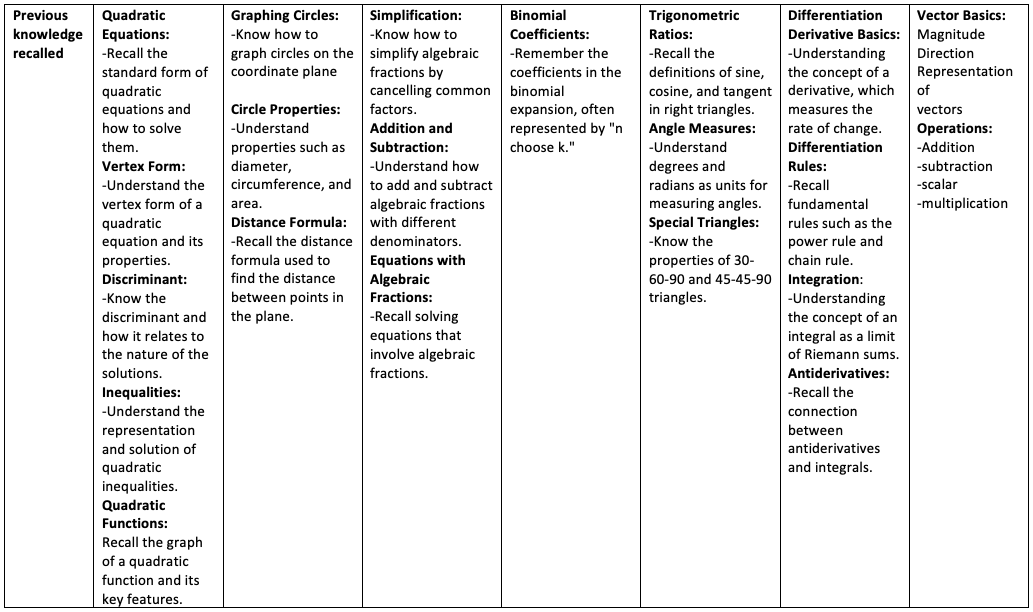
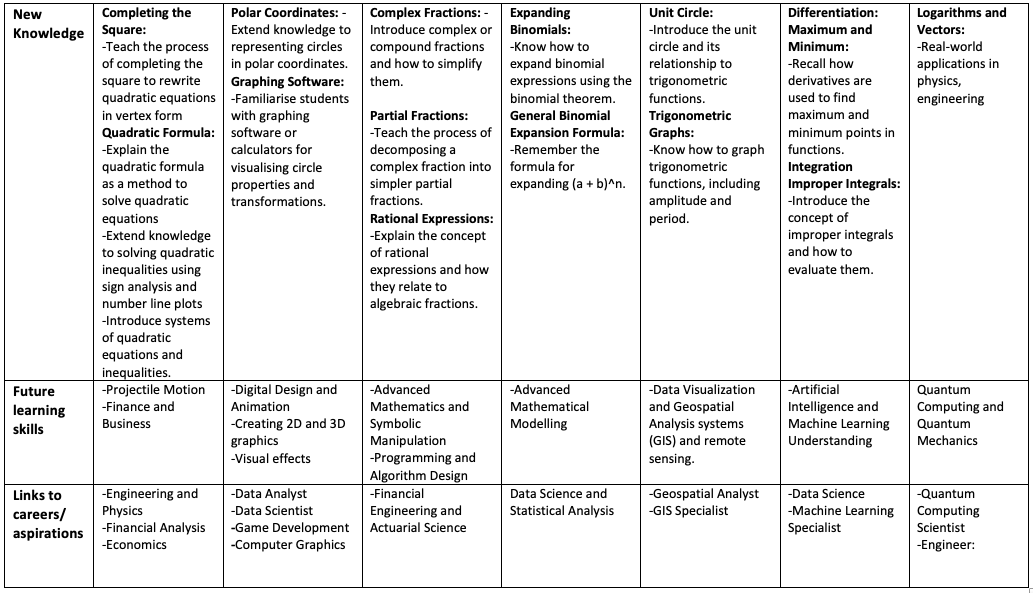
What will my child learn in Year 13 Pure Maths?
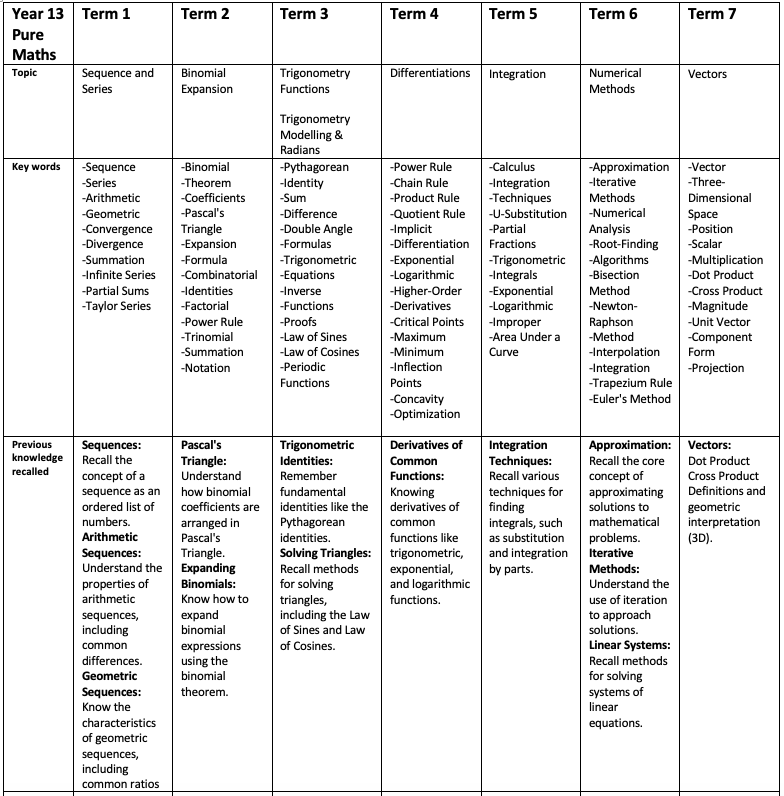
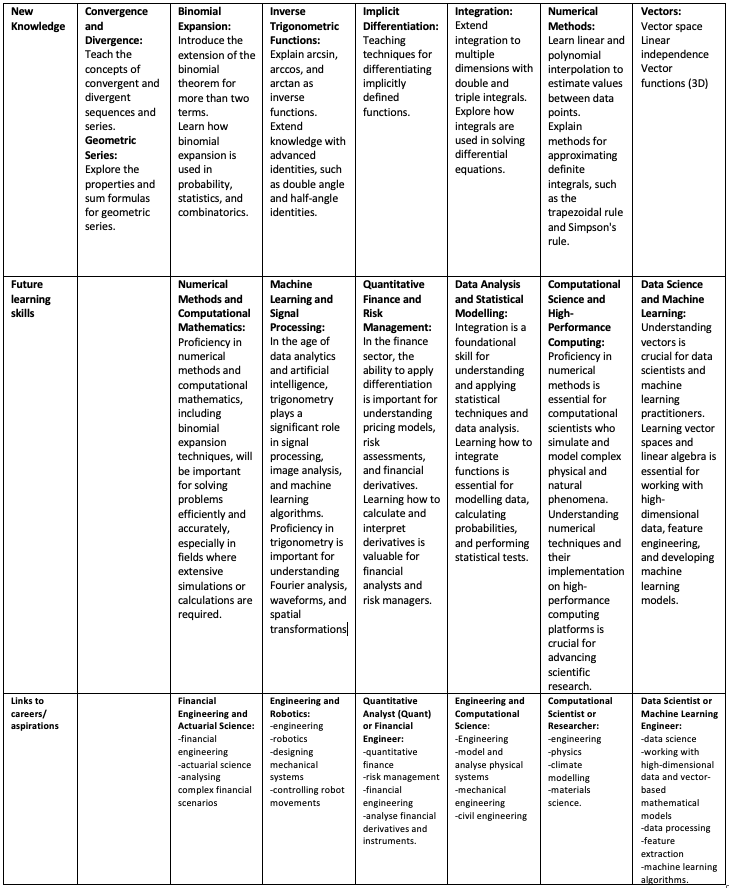
Accommodation and Resources
The Maths department is located in the N-Block and includes eight classrooms each equipped with a projector and a TV Screen. Some classrooms can be opened up to create a large open space. We have hosted different events in these rooms including revision collaborations with other schools. The department has a set of ipads which are used to access various learning platforms and can be used for research.
Extra Curricular Activities
Revision sessions are run on various afternoons, so students can be given help with a topic they might struggle with, provided with some challenges, or to prepare for examinations.
Examination groups are invited to attend workshops on specific afternoons to help them with revision strategies and fill gaps on their understanding allowing them to achieve the best outcomes in their summer exams.
Extended Opportunities For Learning
The Maths Department subscribe to Sparx Maths, an online learning tool which utilises artificial intelligence to pitch the level of the experience in order to stretch and challenge each and every student. The programme has been set in up line with the departments scheme of learning, so all homework consolidates the student’s learning in class.
